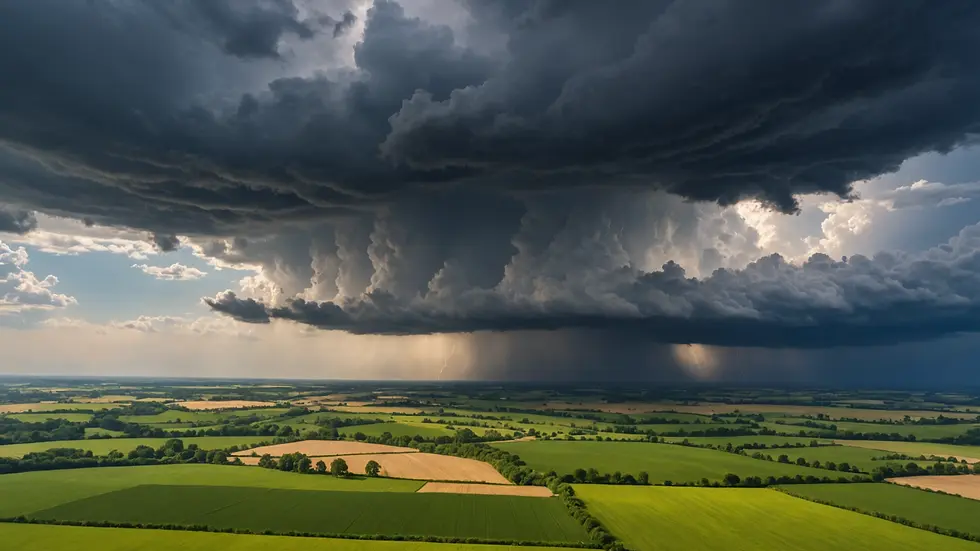Unpredictable Storms: What Can We Learn from Unfavorable Weather Conditions?
- leedsroofingservic0
- Feb 20, 2025
- 3 min read
Severe weather can transform an ordinary day into a chaotic experience. From sudden thunderstorms to dangerous winds, the lessons we learn from these events can have a lasting impact. How prepared are you for the next unpredictable storm? Let's explore the insights offered by unexpected weather and how they can help us not just in facing storms, but also in overcoming life's inevitable challenges.
Understanding the Nature of Storms
Storms are inherently unpredictable. Meteorological forecasts can give us a snapshot of upcoming weather, but they often lack accuracy. For example, the National Weather Service reports that forecasts can be wrong by up to 50% in severe weather conditions. Understanding this unpredictability highlights the need for preparation.
While immediate threats like heavy rain or strong winds are alarming, they remind us of broader factors at play, like seasonal changes and environmental influences. Accepting the unpredictability of storms encourages adaptability, which is a crucial life skill.
The Importance of Preparedness
Being prepared means having a plan ready before severe weather strikes. A good example of this is having an emergency kit. This kit should include items like bottled water, non-perishable food, and first aid supplies.
Furthermore, it's essential to research what types of storms are common in your area. For instance, if you live in a region prone to hurricanes, knowing when the season starts can help you prepare early. According to the National Oceanic and Atmospheric Administration, nearly 39% of Atlantic hurricanes make landfall in the United States, making awareness critical.
Building an Emergency Kit
An emergency kit is a cornerstone of storm preparedness. The contents of your kit can greatly affect your safety. Consider including:
Water: At least one gallon per person per day for three days to stay hydrated.
Non-perishable Food: Aim for a three-day supply. Good options include canned goods, dried fruits, and energy bars.
Flashlights and Extra Batteries: When the power goes out, you'll need reliable light sources.
First Aid Kit: Basic medical supplies can help treat injuries and ailments.
Phone Charger: A portable charger can keep your phone charged, crucial for communication.
Having an emergency kit ready provides peace of mind and ensures you have what you need when a storm hits.
Following Weather Reports
Staying informed is a vital part of preparation. Reliable weather reports can alert you to storms on the way. For example, using the Weather Channel app or local news reports can keep you updated on changes in the forecast, allowing you to modify your plans quickly.
Moreover, understanding weather terminology can be life-saving. The difference between a "storm watch" and a "storm warning" is significant. A watch means conditions are favorable for a storm; a warning means a storm is happening. This knowledge can help you decide when to take action.
Creating a Family Communication Plan
Every family needs a communication plan for emergencies. Storms can cause panic and confusion, making a clear plan vital. Hold regular family meetings to discuss your emergency strategy.
Assign roles and designate meeting spots in case family members get separated. Ensure everyone has each other’s contact information, and practice the plan so everyone knows what to expect when a storm hits.
Home Safety Measures
While personal readiness is key, making sure your home is secure also matters. Simple steps can greatly enhance safety, such as:
Secure Loose Items: Store outdoor furniture and other loose objects to prevent them from becoming dangerous.
Check Your Roof and Gutters: Regular maintenance can help prevent leaks or flooding.
Inspect Windows and Doors: Ensure all entry points are secure to minimize damage from wind.
Taking these precautions protects not only your home but also brings you peace of mind.
Seeking Community Resources
Your community can be an essential resource during unpredictable storms. Many local governments and organizations offer emergency services. Knowing the locations of local shelters and familiarizing yourself with community plans can provide crucial assistance.
Additionally, strong community ties can be invaluable in times of crisis. Neighborly relationships can lead to shared resources and collaboration. During Hurricane Harvey in 2017, community groups provided over 100,000 meals to those in need, demonstrating the strength of collective action.
Preparing for the Unexpected
Life is full of surprises, but proper preparation allows you to weather unpredictable storms with confidence. By learning from past experiences and formulating a clear plan, you can better handle the challenges posed by severe weather.
The important lessons focus on preparedness, community connection, and ongoing learning. While weather may be unpredictable, you can prioritize your family's safety. Whether stocking up on supplies, following up-to-date weather information, or reinforcing your home, these lessons from severe weather can guide you toward resilience in every aspect of life.

Having the right mindset when facing storms can be empowering. Take time to assess your level of preparedness now. Remember, when the skies darken and winds pick up, being ready is your best form of protection.







Comments